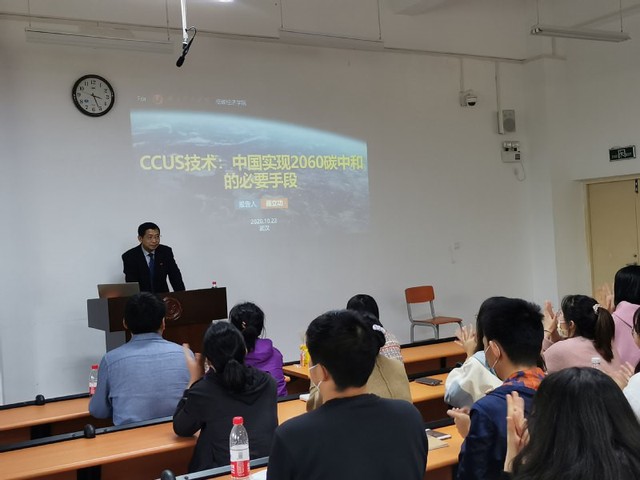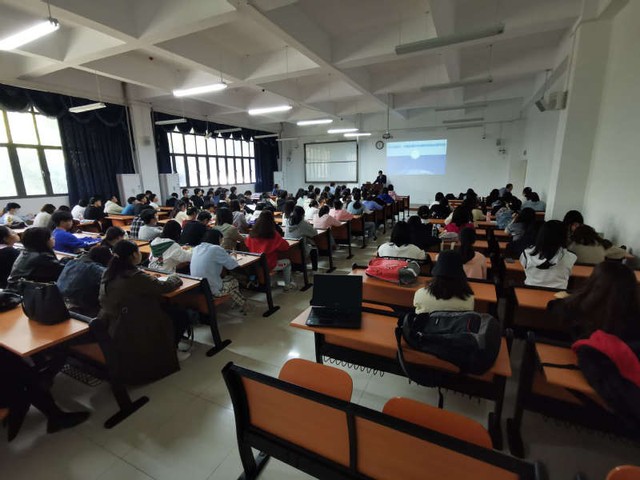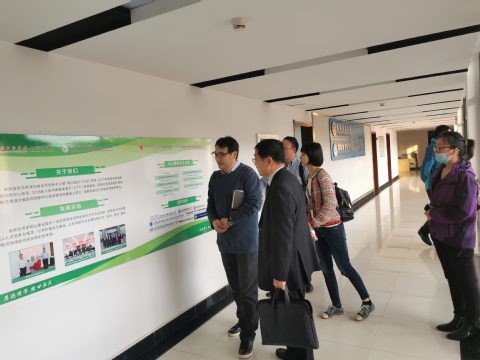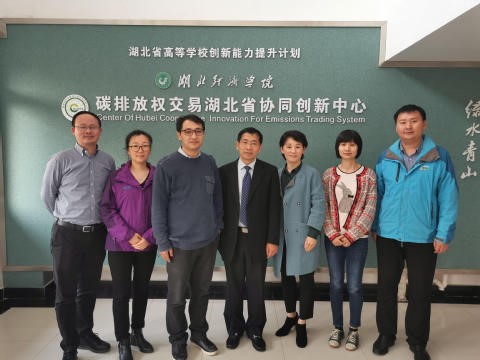On October 22, 2020, Mr. Nie Ligong attended the fifth session of Canglong Forum 2020 on behalf of CHN Energy Technology and Economics Research Institute, delivering a speech about the significance of CCUS technology for China’s carbon neutrality before 2060. Other attendees of the event include Jiang Dalin (Director), Wang Fei (Senior Manager) and Ms. Su Lingyan of Strategic New Industry Research Division, CHN Energy Technology and Economics Research Institute, as well as all teachers and students with the School of Low Carbon Economics.


Mr. Nie Ligong started his keynote speech CCUS Technology: A Necessary Tool for China’s Carbon Neutrality before 2060 with a citation of a remark of President Xi made during the general debate of the seventy-fifth session of the United Nations General Assembly on September 22, 2020: “China will scale up its Intended Nationally Determined Contributions by adopting more vigorous policies and measures. We aim to have CO2 emissions peak before 2030 and achieve carbon neutrality before 2060.” Mr. Nie analysed the challenges surrounding China’s carbon neutrality before 2060, described the technical status of CCUS technology and pilot projects around the world, and pointed out that the revamping of coal-fired power plants is crucial for the success of CCUS efforts, such as carbon capture, utilization, transfer and storage, system integration and clustering, etc. For domestic and foreign CCUS pilot projects, Mr. Nie presented the Boundary Dam of Canada, Petra Nova of the United States of America, and some CCUS pilot projects of China. According to Mr. Nie, to realize carbon neutrality before 2060, China must improve the share of non-fossil energies in the energy mix, implement CCUS revamping on upgradable energy infrastructures, scale up the development of CO2 capture technologies, reduce production cost and minimize energy consumptions.
After the speech, Mr. Nie answered the audience’s questions concerning the safety of carbon storage, the future of coal market, etc.


Then, accompanied by Sun Yongping (Vice Dean), Wang Keying (Vice Dean) and Huang Jinpeng (Assistant to the Dean), the four-person delegation led by Mr. Nie paid a visit to the School as well as the Carbon Emission Trading and Hubei Collaborative Innovation Centre, and listened to the introductions of the School and the Centre.
CHN Energy Technology and Economics Research Institute is the result of a merger between the former Shenhua Institute and the former State Power Technology and Economic Consulting Centre. As the research wing of CHN Energy Investment Group, the Institute plays the roles of strategic support and high-end think tank.
Mr. Nie Ligong is a professor-level senior engineer with the Energy Economy Research Division, CHN Energy Technology and Economics Research Institute. Research fields of Mr. Nie include energy technology development and international market management, etc. In recent years, his research is focused on climate change, energy structure transformation, and other strategic topics. He is the leader and participant of two projects of Future Trend of World Coal Industry assigned by the World Coal Association (WCA), five projects approved by the National Energy Administration (CCUS Technology and Sustainability of China’s Coal-based Energy System, etc.), four key consulting projects entrusted by the Chinese Academy of Engineering (Optimization of China’s Energy Structure for Fulfilling Carbon Reduction Commitment, etc.), and three innovation projects entrusted by Shenhua Group (Potential of CCUS Technology for Coal-fired Power Plants of Shenhua and Relevant Development Strategy, etc.). He is the author of two academic monographs; the winner of seven research prizes awarded by the National Energy Administration, and other provincial or ministry-level entities; and the winner of two research prizes awarded by CHN Energy Investment Group (including Shenhua Group).
